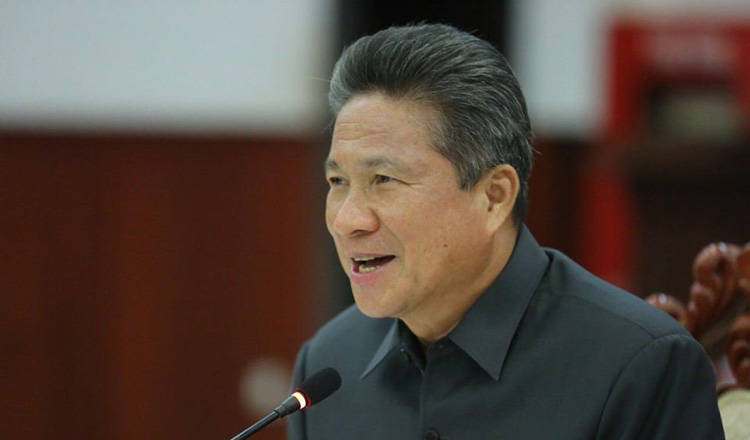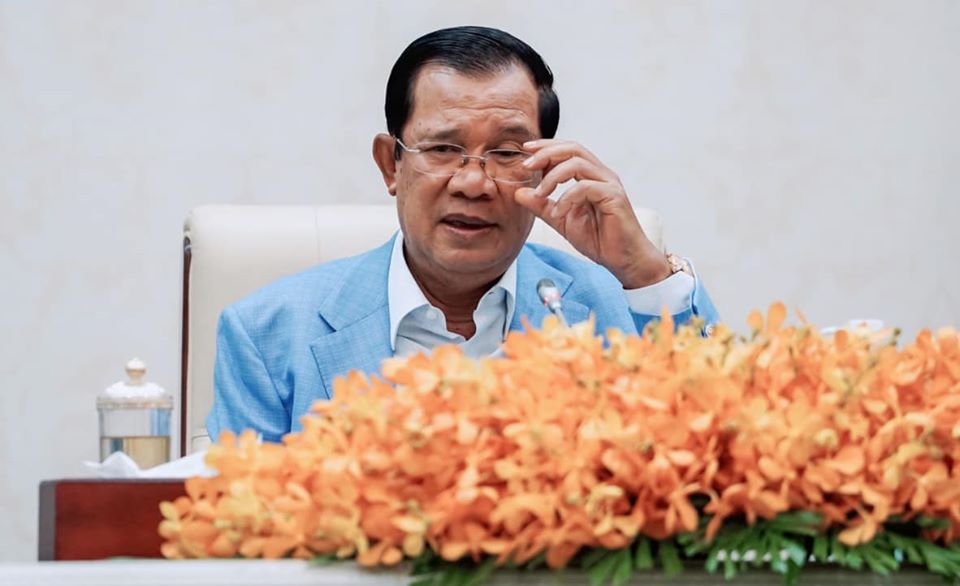Smart Axiata’s CEO Thomas Hundt talks 5G
In an effort to boost the development of the digital economy over the next few years, the Ministry of Information will release the 700MHz band to the Ministry of Posts and Telecommunications to help it develop the 5G network.
Thomas Hundt, CEO of Smart Axiata Co Ltd, one of the leading mobile operators in Cambodia, talks to The Post’s May Kunmakara about the company’s investment plan for the roll out of 5G network coverage in the Kingdom.
What’s the latest news about your company’s 5G network development?
Since hosting the Kingdom’s first 5G live trial showcase in July last year, Smart Axiata has been carrying out 5G trials and tests at some sites in Phnom Penh using the trial licence issued by the Telecommunication Regulator of Cambodia.
We have managed to achieve gigabit speeds and favourable latencies while exploring new test use cases, including the recent initiative with our partner Huawei Technologies (Cambodia) Co Ltd of deploying a temporary on-site Covid-19 coordination and monitoring centre for the Ministry of Health which connects to the Khmer-Soviet Friendship Hospital and Chak Angre Krom Health Centre via video conferencing facilities using 5G trial frequencies.
We intend to continue the trial over the next few months until the government provides more clarity on the 5G licensing and policy framework which would then give operators like Smart Axiata the opportunity to offer 5G services commercially to the public.
What is your view about the government’s plan to release the frequencies in the 700 MHz band for the development of 5G?
The 700MHz frequency (widely known as the APT700 in our region) is an ideal band for rural coverage as it has very good propagation characteristics – this means it is more economical for mobile operators to address rural mobile coverage faster.
We are certainly encouraged by the announcement from the prime minister earlier this year, and recent developments at the Ministry of Posts and Telecommunications, the Ministry of Information as well as the Ministry of Economy and Finance concerning the national digital switchover which will enable the release of APT700 for mobile services.
Many countries in the region have released or are releasing this band urgently to bridge the digital divide as many mobile handsets are already compatible.
While there have been countries assigning APT700 for 5G, it is vital for Cambodia to ensure that the APT700 band is assigned not only for 5G but is technology neutral. Mobile operators should be allowed to also use the APT700 to improve 4G LTE availability which is very much still relevant in the country (especially rural areas) and also other technologies in the future as mobile handset capabilities and compatibility increase further.
Is Cambodian infrastructure ready to adopt such advanced technology?
Smart Axiata invests $70 to $80 million per year, primarily in network expansions. This commitment remains the same for 2020 though we have had to increase capital expenditure to support the high usage trends and expectations during this unprecedented Covid-19 situation.
In terms of 5G infrastructure, we envision that Cambodia will first adopt 5G non-standalone architecture. And for this, we are certainly very ready. We have upgraded our core to be 5G-compatible since last year and are continuing our trials on multiple aspects and uses.
Once we obtain the necessary licence and approvals for the use of the associated 5G spectrum, we will be able to make 5G a reality in Cambodia in a few months. If we want to be one of the first in ASEAN, all stakeholders need to work together or else we will miss the train as many other countries are planning 5G launches by Q4 2020.
At this juncture, we would also like to point out that 5G is expected to be very capital expenditure intensive, therefore it is vital that the government makes future 5G spectrum sufficiently available at a reasonable cost.
Otherwise, the sustainability of the mobile industry may be uncertain in the future, thus preventing the potential of 5G and other mobile services to be fully harnessed.
Credited: The Phnom Penh Post







